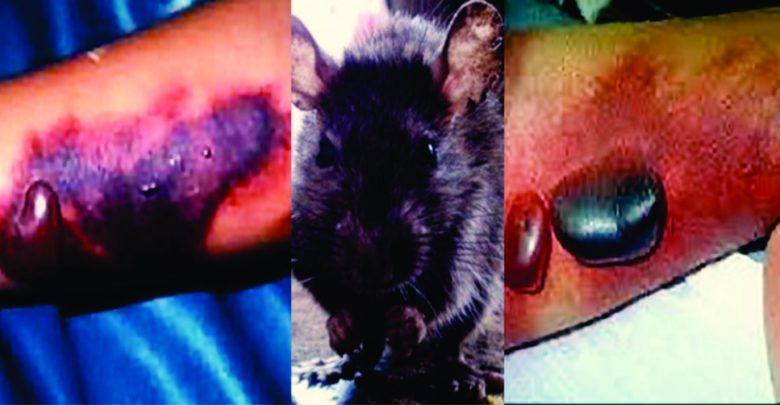
BACKGROUND:
Dear readers, on the of August 2016, I published this article in NEWSLINK Newspaper where I served as a Guest Columnist for some years. 4 years after, I find this article very relevant to our daily existence based on the recurrent outbreaks of infectious diseases in our dear country, many of whom are zoonotic. These outbreaks, which have been compounded by the enormous challenges in the health sector, have led to hundreds of avoidable deaths. It’s my hope that this article will give us more insight into these critical issues.
Introduction:
Dear avid readers, your very exciting, educating and highly informative column, HEALTH 4 HUMANITY is back. I promise you a very exciting and rewarding experience as we will be out on every Tuesday edition of our tabloid, NEWSLINK. Have a happy and fruitful new month. Welcome to August.
Health sector challenges and recurrent infectious disease outbreak
RELATED: Health Nuggets: Coronavirus
‘Humanity shares a common ancestry with all living things on earth. We often share, especially close intimacies with the microbial world. In fact, only a small percentage of the cells in the human body are human at all. Yet, the common biology and biochemistry that unite us make us susceptible to contracting and transmitting infectious diseases.’
– Brenda Wilmoth Lerner
Definitions
• Infectious diseases
– Are caused by pathogenic micro-organisms such as bacteria, viruses, parasites or fungi; the diseases can be spread directly or indirectly from one person to another (WHO,2016)
– Zoonotic diseases are infectious diseases of animals that can cause diseases when transmitted to humans
• An outbreak
– A disease outbreak is the occurrence of cases of the disease in excess of what would normally be expected in a defined community, geographical area or season. It may occur in a restricted geographical area or may extend over several countries, it may last for a few days or weeks or for several years (WHO,2016)
• Recurrent
– Means occurring often or repeatedly
• Challenges
– A new or difficult task that tests somebody’s ability or skill
• Health sector
– A category of stocks relating to health care goods and services. The health care sector includes hospital management firms, Health Management Organizations (HMOs) etc
Background
• Epidemics of infectious diseases have been documented throughout history. In ancient Greece and Egypt, accounts describe epidemics of small pox, leprosy, tuberculosis, meningococcal infections and diphtheria (Watt S,1997)
• The morbidity and mortality of infectious diseases profoundly shaped politics, commerce and culture. In epidemics, none were spared. Small pox likely disfigured and killed Ramses V in 1157 BCE (Ruffer MA et al,1911)
• The bubonic plague or black death and its co infections, measles and small pox were the most devastating of the epidemic diseases. In 1960 CE, plague contributed to the collapse of the Han Empire (Lee, 2000)
• Another epidemic infectious disease of great historical importance is syphilis
• Syphilis became an epidemic in the 1490s as a highly contagious venereal disease in Spain, Italy and France.
• By the 1530s, the venereal spread of syphilis was widely recognized in Europe (Pusey,1933)
• The name syphilis originated from the popular and extremely long poem by GirolamoFracastoro ’ Syphilis sivemorbusGallicus,’ which was written in 1546 (Rosen,1993) Early epidemiology
• In Western medicine, Hippocrates (460-377BCE) was among the first to record his theories on the occurrence of disease.
• In his treatise, airs, water and places, he dismissed supernatural causes of disease and instead attributed illness to characteristics of the climate, soil , water ,mode of life and nutrition surrounding the patient.
• He coined the terms endemic and epidemic disease.
• Also, as far back as biblical times, leprosy was believed to be highly contagious and afflicted persons were treated with fear and stigmatization.
• In the middle ages, lepers were literally stricken from society as leprosy became increasingly equated with sin.
• Some even required lepers to stand in a dug grave and receive the mass separation from a priest after which, they were considered ‘dead.’
• I forbid you to enter a church, a monastery, a fare, a mill, a market or an assembly of people. I forbid you to leave your house unless dressed in your recognizable garb and also shod. I forbid you to wash your hands or to launder anything or to drink at any stream or fountain, unless using your own barrel or dipper. I forbid you to touch anything you buy or barter for, until it becomes your own. I forbid you to enter any tavern; and if you wish to wine, whether you buy it or is given to you, have it funneled into your keg. I forbid you to share a house with any woman but your wife. I command you, if accosted by anyone while travelling on a road, to set yourself downwind of them before you answer. I forbid you to enter any narrow passage, lest a passerby bump into you. I forbid you , wherever you go, to touch the rim or the rope of a well without donning gloves. I forbid you to touch any child or give them anything. I forbid you to eat from any vessel but your own
• In his book published in 1546, De contagioneontagiosismorbis et curatine (on contagion, contagious diseases and their treatment) Fracastoro (1478-1553) conceived the idea that infections were spread from person to person by minute invisible seed, seminaria Epidemiology
• Infectious diseases disproportionately affects the poorest population in the world and contributes to a cycle of poverty as a result of decreased productivity ensuring from long term illness, disability and stigma (Bhutta et al, 2014)
• In 2010, the global deaths from HIV/AIDS increased to 1.5 million ,malaria mortality rose to 1.17, mortality from neglected tropical diseases rose to 152,000, while tuberculosis killed 1.2million people in the same year (Bhutta et al, 2014).
• Infectious diseases continue to have a substantial impact on the health of communities around the world from global HIV and Tuberculosis (TB) epidemics to the threat of resistant bacteria to the challenge of emerging and newly identified pathogens.
• In Nigeria, Infectious diseases remain the leading cause of death in the country (Alonge,2013)
Classification of infectious diseases
• There are 217 infectious diseases classified as
– Bacteria
– Viruses
– Fungi
– Protozoa
– Helminthes
Common examples
• Bacteria
– Cholera
– Anthrax
– Diphtheria
– Syphilis
– Tuberculosis
– Typhoid fever
• Virus
– Human Immunodeficiency Virus (HIV)
– Hepatitis
– Measles
– Polio
– Rabies
– SARS
– Viral Haemorrhagic Fevers (VHF)
• Fungi
– Athlete’s foot
– Candidiasis
• Protozoa
– Malaria
– Amoebic dysentry
• Helminthiasis
– Filariasis
– Hookworm disease-ancylostomaduodenale
– Round worm disease-ascarislumbricoides
– Blood fluke
– schistosomamansoni
General challenges
• Agent
– Evolution of pathogenic infectious agents
– Drug resistance
– Resistance of vectors to pesticides
• Host
– Change in human demographics
– Human behaviour ( sexual and drug use)
– Poverty and social inequality
– Immunosuppression
• Environment
– Climate and changing ecosystems.
– Economic development and land use (urbanization, deforestation).
– Technology and industry (food processing and handling).
– International travel and commerce.
– Breakdown of public health measures due to wars ,unrest and overcrowding).
– Deterioration in surveillance systems.
Health sector challenges
• Manpower
– Inadequate personnel.
– Lack of training and retraining on IPC.
– Poor attitude of health personnel towards IPC.
– Ignorance, personal beliefs and lack of awareness on IPC amongst health personnel.
• Infrastructure
– Lack of potable pipe borne water.
– Lack of steady electricity power supply.
– Lack of accommodation facilities.
– Lack of isolation rooms.
– Lack of a virology laboratory.
• Equipment
– Lack of sterilizing equipment like autoclaves , washing machines etc
– Inadequate and sustainable supplies of PPEs
– Lack of computers
– Inadequate supplies of thermometers and other hospital equipment.
• Health Care Waste Management(HCWM)
– Inadequate supplies of commodities
– Inadequate supplies of incinerators
– Absence of a treatment plant
– Absence of a HCWM agency
• Disease surveillance
– Inadequate reporting sites.
– Inadequate focal persons and community informants.
– Passive surveillance.
– Inadequate supplies of posters with case definitions etc.
• Immunization systems
– Weak systems
– Poor cold chain facilities
• Absence of State Primary Health Development Agencies
• Clinical governance
– Lack of protocols
– Absence of triage
– Inadequate supportive supervision
– Absence of policies on IPC and HCWM
– Absence of health insurance/universal health coverage
• Lack of funds
– Irregular payment of salaries.
– Irregular/Non-payment of imprests and subventions.
•Lack of political will
Recommendations
• Improved infrastructure.
• Recruitment of more health personnel.
– Training and retraining of the personnel.
• Provision of basic equipment.
• Enhancement of the surveillance system.
• Strengthening of immunization systems.
– Establishment of State PHCDAs.
• Implementation of IPC/HCWM policies and strengthening of HCWM systems.
• Provision of a budget line for surveillance, immunization and IPC/HCWM.
Conclusion
• The high morbidity and mortality burden of infectious diseases, especially in resource poor settings, is a clarion call for all of us and the government to identify the best strategies to prevent and control these diseases
• Remember ,’prevention, is better than cure,’
References
• Global burden ,distribution and interventions for infectious diseases of poverty
– Zulfigar A Bhutta et al, 2014
• Epidemics and history: Disease,power and imperialism. New Haven,Conn: Yale University Press;1997
– Watt S
• Note on eruption resembling that of variola in the skin of a mummy of the twentieth dynasty (1200-1100BC)
– Ruffer Ma, Ferguson AR ,1911
• The history and epidemiology of syphilis. Springfield III:
– Pusey EW, Charles C. Thomas ,1993
• A history of public health : Baltimore, Med: Johns Hopkins University Press
– Rosen ,GA .1993
FEEDBACKS:
For more information and enquiries, send an email to donkemsy@yahoo.com or call 08036780343




